MSF deploys Covid-19 teams in Geneva to help most vulnerable
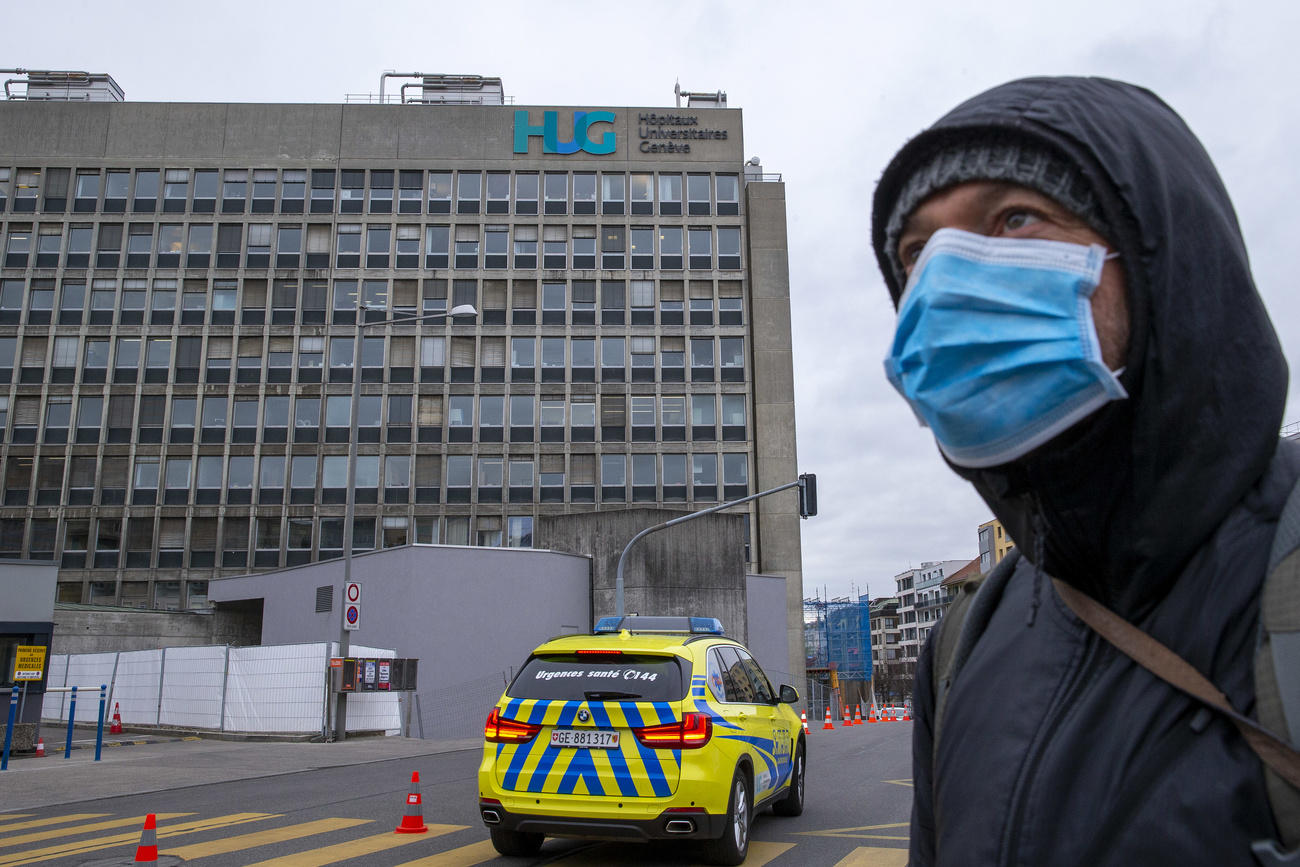
Switzerland is one of the wealthiest countries in the world with arguably one of the best health systems, yet the scale of the coronavirus pandemic means that even the Swiss need humanitarian support. Medical charity Médecins Sans Frontières (MSF) has 12 specialists in Geneva helping the main hospital as well as the homeless and other vulnerable residents.
“Today, in Europe some of the most advanced health systems in the world are buckling under the pressure of the Covid-19 pandemic. Responding to epidemics is at the core of what we do – intervening when the system is overrun and where we can put our expertise in managing emergencies to good use,” said MSF International President Christos Christou on March 27.
In recent weeks, the humanitarian agency, perhaps best-known for its work in conflict zones in countries such as Yemen or the Democratic Republic of the Congo, has been scaling up its activities across Europe to Covid-19External link – in Italy, Belgium, Spain, France, Norway, Greece and Switzerland.
As of April 1, the small Alpine nation has recorded over 17,000 positive tests and 464 deaths. Canton Geneva, in western Switzerland, is one of the worst-hit regions, with 2,700 confirmed cases of infection and 59 deaths.
“If you look at Europe, the situation in Italy, Spain and France is more worrying than in Switzerland. The health system here is organised to reply to the crisis. But it’s the first time that an epidemic of this size has hit Switzerland since the Spanish Flu of 1918 that killed 21,000 people. It’s the first time that Swiss doctors have had to face something so important,” said Patrick Wieland, head of mission for MSF Switzerland.
“Our work in Switzerland is a sign of solidarity with the Swiss public, who support us for our activities worldwide. We need to be here and abroad, even if it’s a rich country. People need help. We bring an added value which is our experience learnt abroad.”
Medical support
At the request of the health authorities, two MSF doctors with experience of dealing with cholera and Ebola epidemics in Africa are supporting the main Geneva University Hospital (HUG) and sharing their expertise on how to handle large epidemic crises.
The focus is on sharing advice on managing patients who have contracted Covid-19 and with the organisation of medical teams and services in the hospital. The Geneva authorities predict the peak of infections will arrive in about ten days.
“When there is a big influx of patients, they might not necessarily be used to seeing that kind of thing. They also need to take very strict measures to protect themselves and the patients. The doctors here know all that, but in theory – they’ve never really practised it for real. We can pass on this experience,” Wieland said.

More
On the frontline at a Swiss hospital battling Covid-19
Under the coordination of the HUG, MSF has also set up a six-person mobile medical team to provide home-based care to the most vulnerable with Covid-19.
The caseload will include Covid-19 positive patients who don’t need to go to hospital but can stay at home, suspected cases that haven’t been tested and people who have been sent home from hospital but need to be monitored at home. Emergency cases will be referred to the hospital.
In collaboration with the Geneva city authorities, the agency has also given advice to local public and private mortuary services on procedures to avoid any post-mortem transmission of the disease.
Barracks for the homeless
Around 3,000-5,000 vulnerable people are thought to live in particularly precarious conditions in Geneva. The pandemic has hit hard, disrupting local associations’ work with the homeless and migrants who live in overcrowded shelters, on the streets, or in poor housing. Many of these marginalised groups may already be in poor health and are excluded from the healthcare system. Finding food has become more complicated.
The city of Geneva authorities and local associations were forced to urgently re-accommodate people in shelters to adjust to the new emergency sanitary rules introduced a couple of weeks ago. This week the quickly renovated Vernets military barracks opened for its first homeless tenants. The barracks and a refugee shelter will be able to house up to 530 people, mainly the homeless, currently staying in civil protection shelters and school gymnasiums.
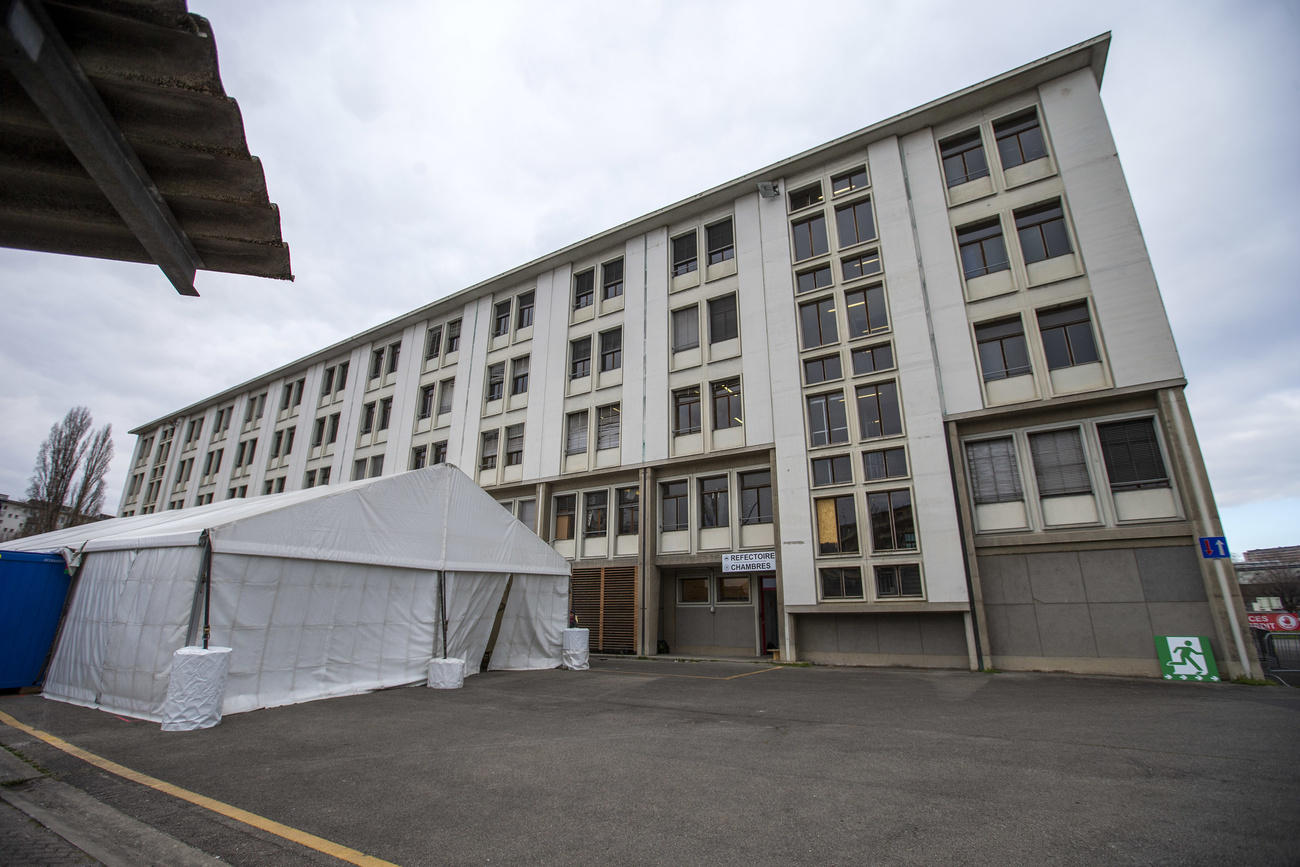
MSF passed on its advice for the new arrivals and staff in the temporary accommodation.
“We have put in place protection and infection procedures at the shelters in Geneva. This includes things like how to properly maintain distances between people, how to set up the showers and disinfect them, how to wash clothes and air the accommodation or transform certain things and prepare for a possible total confinement,” Wieland said.
The Geneva authorities’ strategy to accommodate the homeless together has been criticised by some people, who would have preferred the state to house them in individual unoccupied hotel rooms, as done elsewhere in Europe. But the city authorities have refused such a step.
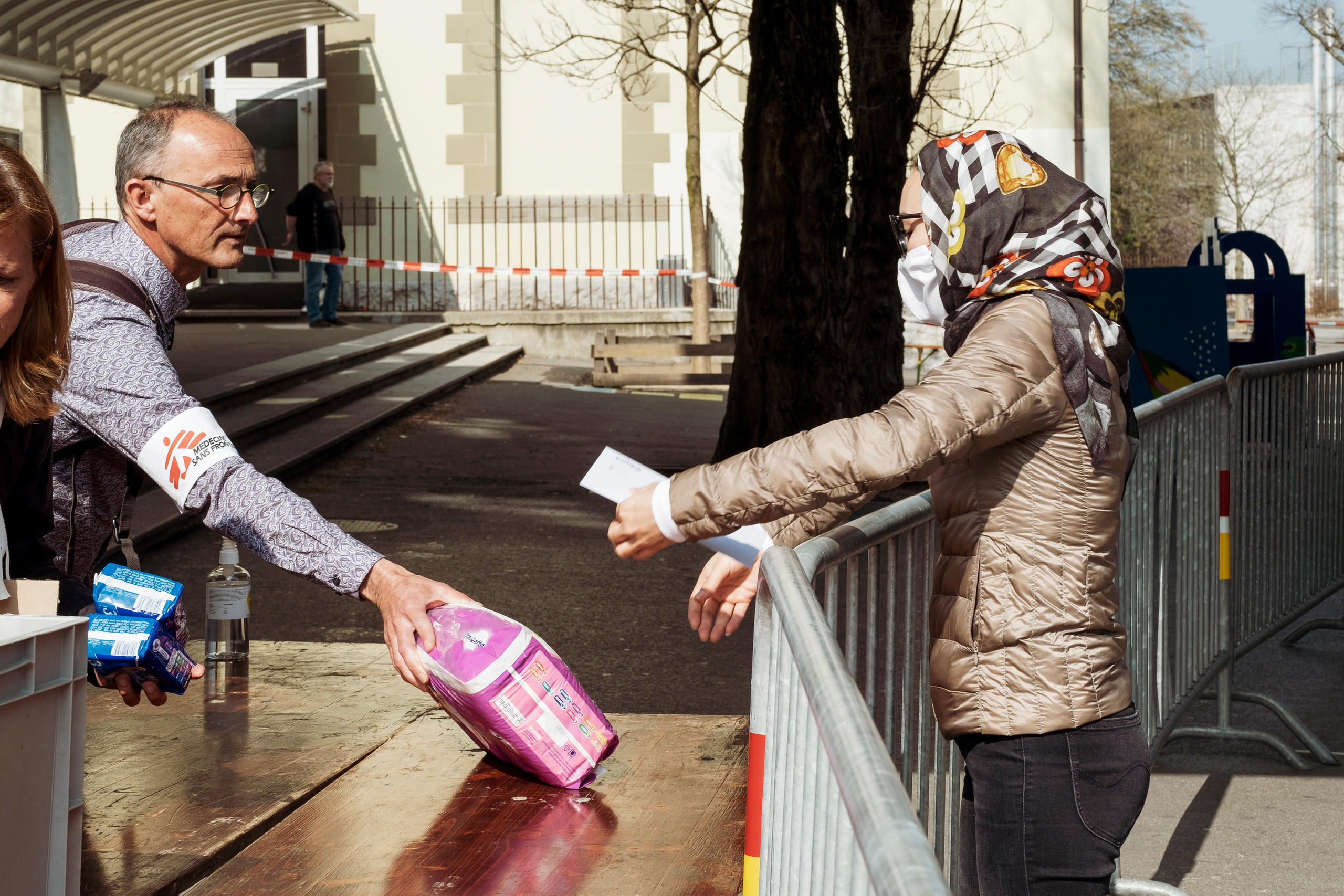
Meanwhile, MSF has also advised local associations and the authorities on the organisation of four distribution points which were set up in Geneva on March 28 to hand out vouchers for food and essential hygiene kits, nappies and soap for 1,300 families.
For the moment the medical charity has deployed 12 staff in Geneva, but its Swiss operations could expand. It recently carried out an evaluation in Lausanne on the situation of the most vulnerable and it plans to visit canton Ticino this week to see if there are any outstanding needs.
Red Cross app
So far, over 40,000 people have signed up to the “Five up” appExternal link, launched in Switzerland by the Swiss Red Cross and the Swiss Public Utility Society, which aims to provide a space for the coordination of volunteer groups. Some 2,300 contacts have been established between people in need and volunteers, the Swiss Red Cross said on March 26.
Volunteers help people at risk with their shopping or look after the children of those who have to work during the lockdown.
“There is huge demand, but solidarity is great,” said Maximiliane Basile, director of Five up. He said there had been numerous offers of aid from volunteers, but that the situation was becoming more tense and that the number of calls from people at risk had been increasing constantly.
In contrast to groups organised on social media, the app allows a direct overview of where help is needed and where volunteers are available. For elderly people without a smartphone or access to the app, a special hotline has been created – 058 400 41 43 (French-speaking Switzerland) and 058 400 41 41 (German-speaking Switzerland) – which is open from 9am-1pm every day to connect people in need with local volunteers.

More
Coronavirus: the situation in Switzerland

In compliance with the JTI standards
More: SWI swissinfo.ch certified by the Journalism Trust Initiative

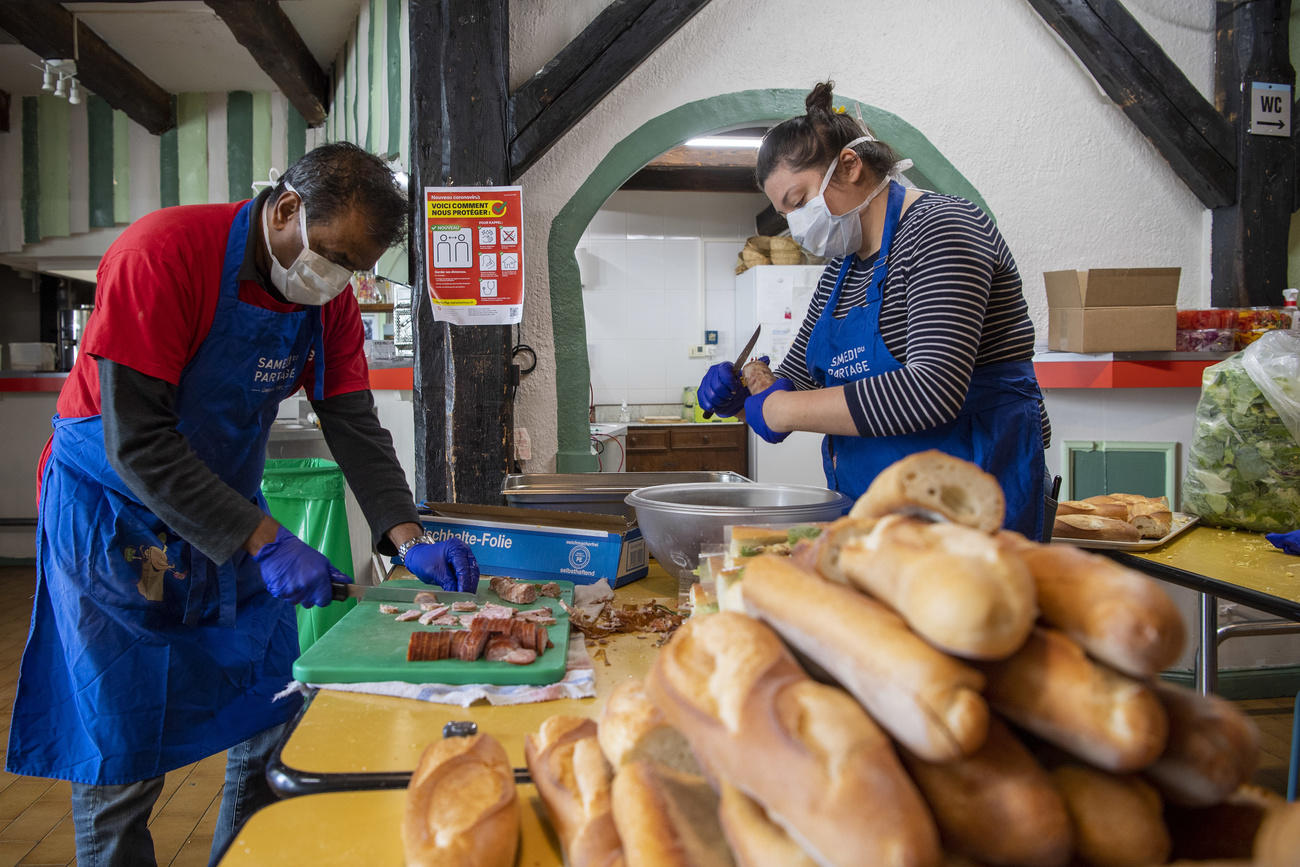
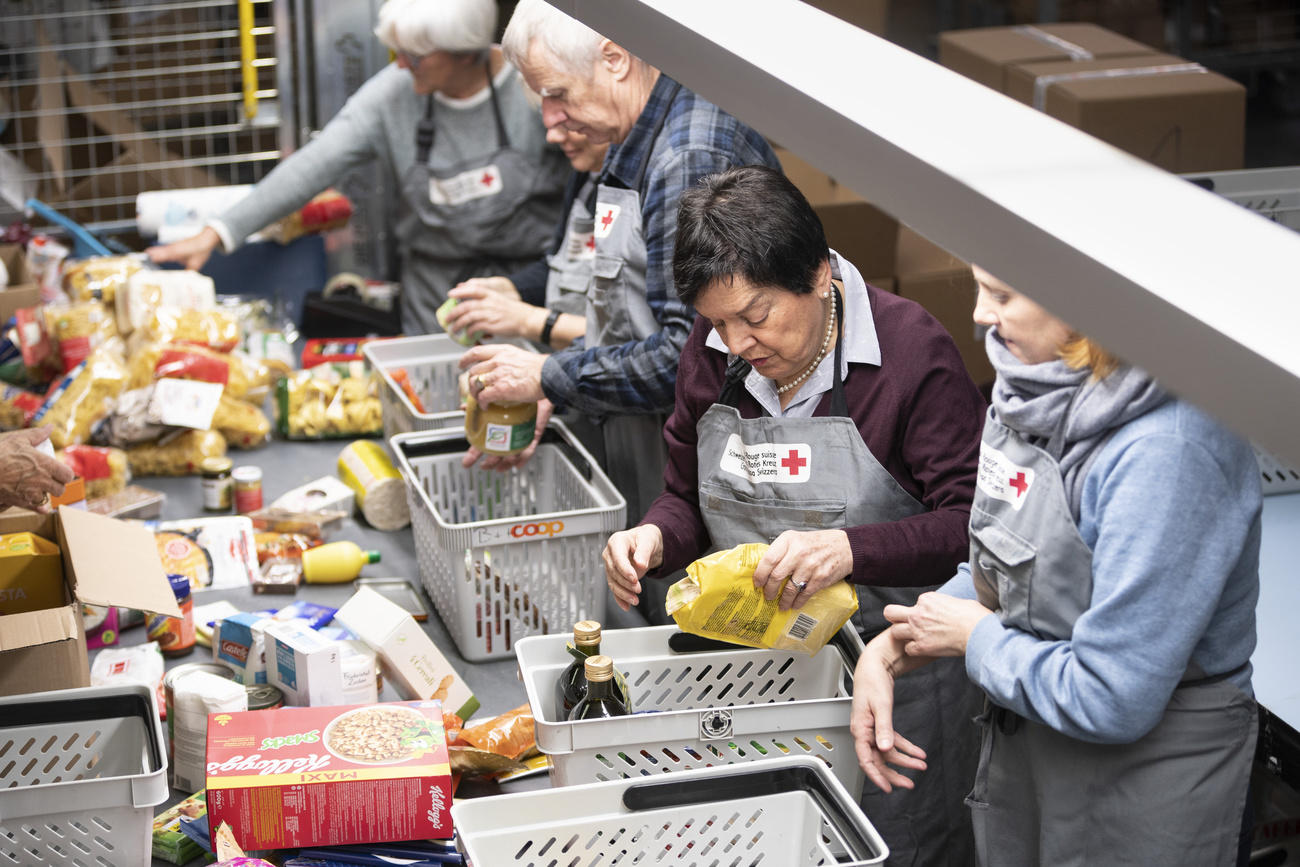
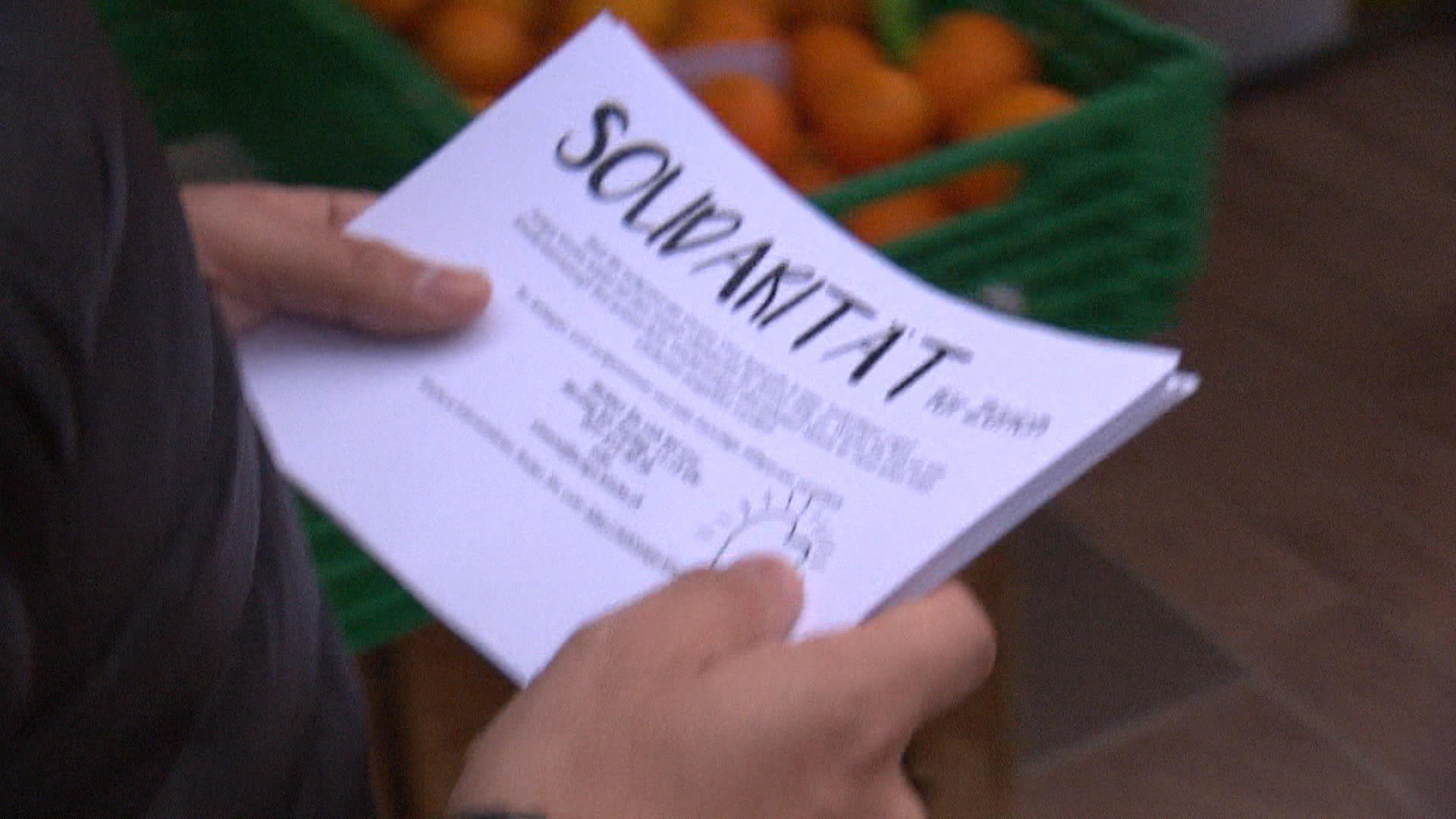
You can find an overview of ongoing debates with our journalists here. Please join us!
If you want to start a conversation about a topic raised in this article or want to report factual errors, email us at english@swissinfo.ch.